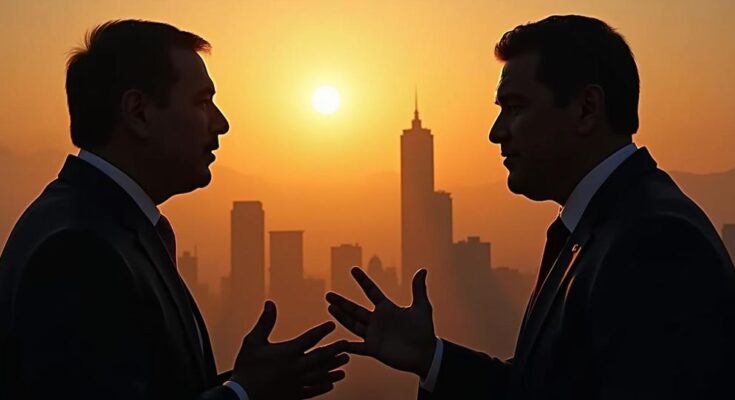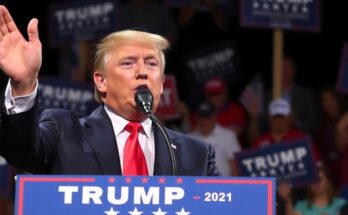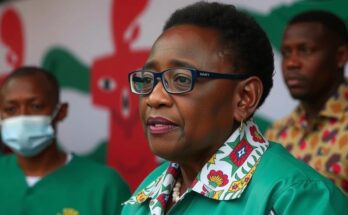During a meeting at the U.N. General Assembly, U.S. Secretary of State Antony Blinken and Argentine Foreign Minister Diana Mondino underscored concerns over Venezuela’s democratic backslide under President Nicolas Maduro. They advocated for a united effort to support Venezuelan democracy and address the escalating refugee crisis resulting from Maduro’s oppressive regime.
On September 26, U.S. Secretary of State Antony Blinken and Argentine Foreign Minister Diana Mondino convened a crucial diplomatic dialogue regarding the situation in Venezuela during the United Nations General Assembly in New York. The meeting, held at the Palace Hotel, aimed to strengthen cooperation between the United States and Argentina, the largest economy in South America, in addressing the authoritarian challenges posed by Venezuelan President Nicolas Maduro. During the meeting, Mondino articulated the pressing need for collective action against the threats of authoritarianism in the continent, warning, “There are winds, authoritarian winds, blowing in our continent, and let’s hope it does not become a hurricane.” She emphasized that the unrest in Venezuela could escalate into a significant crisis impacting regional stability. Blinken, reiterating concerns raised earlier, condemned Maduro’s refusal to step down from his presidency despite compelling evidence of his electoral defeat on July 28. He also condemned the regime’s violent repression of peaceful protests, which has resulted in a humanitarian crisis with millions fleeing the nation. Blinken stated, “We come here united in the commitment to defend the human rights of the Venezuelan people, and committed to bring about an inclusive, Venezuelan-led effort to restore the nation’s democratic future.” His remarks underlined the importance of dialogue between Maduro and the united democratic opposition in restoring democracy in Venezuela. Both leaders, along with representatives from 40 other countries and organizations, endorsed the recognition of opposition candidate Edmundo González Urrutia’s victory in the disputed elections, calling for the international community to respect the electoral outcomes. Furthermore, they jointly expressed their severe concerns regarding Venezuela’s ongoing crisis, advocating for adherence to democratic principles and the protection of human rights. Mondino highlighted the considerable destabilization caused by the Venezuelan crisis, stating, “The destabilization … that Venezuela has imposed on other Latin American countries is huge.” She noted that the influx of approximately 7.8 million Venezuelan refugees into neighboring countries, including an increasing number into Argentina, poses challenges that could give rise to xenophobia for the first time in Latin America. Her remarks came amidst rising tensions as the Argentine Embassy in Caracas faced threats related to the Maduro regime’s demands for the return of opposition supporters sheltering there. Additionally, the Argentine President Javier Milei criticized the U.N. as ineffective and accused it of promoting a socialist agenda, further emphasizing the tensions surrounding the discussions on Venezuela.
The ongoing crisis in Venezuela, marked by economic collapse, political unrest, and a humanitarian catastrophe, has led to a significant refugee exodus in recent years. The country’s political landscape has been dominated by authoritarianism under President Nicolas Maduro, who has consistently faced allegations of electoral fraud and human rights violations. The situation has prompted concern among neighboring countries in Latin America, resulting in diplomatic efforts to address the crisis and support democratic restoration in Venezuela.
The discussions between U.S. and Argentine leaders underscore the urgent need for international cooperation in addressing the Venezuelan crisis. The humanitarian implications of Maduro’s regime, evidenced by the mass exodus of refugees, also highlight the broader regional risks posed by authoritarian governance in Latin America. Moving forward, the commitment to recognize legitimate democratic processes and defend human rights will be crucial in seeking a peaceful resolution to the turmoil in Venezuela.
Original Source: www.upi.com




